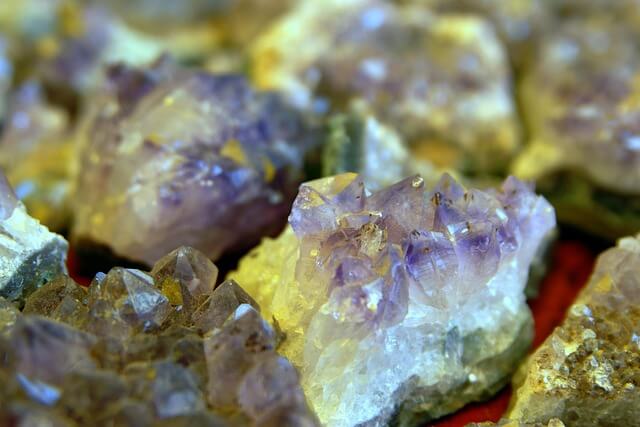
Howdy Friends!
It’s Abbey, and today is part two of our “What Is” series! I’m here to chat about something we all hear about but maybe don’t think a ton about…minerals! Or perhaps you think about them, but do you know what they actually do?
The term mineral is one of four major nutrient groups we will be addressing (the others are Vitamins, which we chatted about a couple of weeks ago, plus essential amino acids, and essential fatty acids… we’ll get into those another time!). Essentially, a mineral is one of the inorganic elements that our body uses to carry out its most minute processes. The ones that are present in the biggest amounts, and that you have probably heard about, are calcium, phosphorus, potassium, sodium, and magnesium. Then there’s a second set present in much smaller amounts: trace minerals. This group includes iron, chlorine, cobalt, bromine, copper, chromium, zinc, selenium, iodine, and my personal favorite (because it’s fun to say!) molybdenum. There is also a third set that are “ultra trace” minerals, but I’m not going to try to address those today.
Simply put, minerals exist in different biochemical processes in your body. For example, iron is the piece of hemoglobin that binds oxygen in your red blood cells. Iodine aids the thyroid gland. Copper activates the enzymes that create your adrenal hormones (epinephrine, norepinephrine, etc.). Manganese helps activate your pituitary gland. Generally, all these trace minerals are present in enzymatic reactions, allowing your body to do metabolism effectively. When we are missing one or more of these minerals, things can quickly get sluggish, and out of whack!
Now, I’m not just saying this to tell you to go outside and eat some dirt… after all, that’s probably not the best bioavailable form for you! Minerals come from quality whole food sources: beef, poultry, eggs, (whole fat) dairy, dark leafy greens, nuts, and fish. If we can include these in appropriate amounts (and the less processed the better), then we’re doing alright. But if it seems like we just aren’t getting enough, we have several great Standard Process products to bridge the gap. Trace Minerals B-12 includes all of these things we need in proportional amounts. If iodine is an issue, as it can be for some, Manganese B-12 includes everything but the iodine. When we start talking about the more major elements you need (calcium, magnesium, etc.), there’s some more specific products we can look at too.
If all of this feels a bit overwhelming and if you are unsure of what your body needs, come chat with us in the office or if you are out of the area, set-up a call with us. We’re happy to do a nutritional consult and figure out what makes sense for you. Until then, remember health comes from you, not to you. We’ll see you soon!
Cheers,
Abbey BS, CNC
We currently have Trace Minerals B-12 on the shelf, if you want to pick-up to avoid shipping costs.
Image by cem çevikayak from Pixabay
